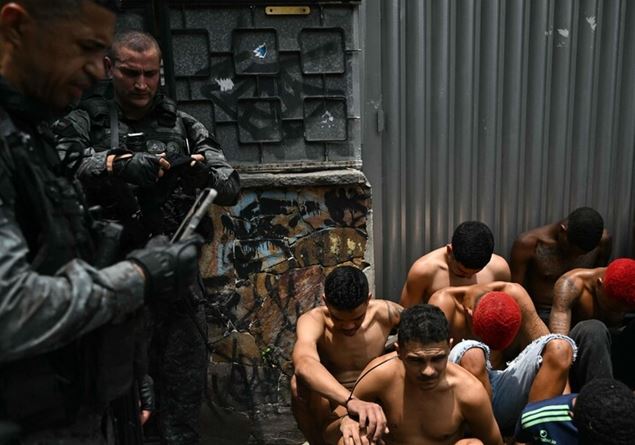October 29, 2025 will remain etched in the memory of Rio de Janeiro as one of the most violent days in its recent history. The anti-narcos operation launched by governor Cláudio Castro against Vermelho Commandthe most powerful criminal faction in the city, has transformed the favelas of Alemão and Penha on a battlefield. The budget, still provisional, speaks of over 100 deathsincluding four police officers, and of a paralyzed city: schools closed, transport blocked, hospitals in emergency.
The invisible war According to the testimonies collected by the portal Uolmany of the corpses found present signs of summary executionswith gunshots to the back of the head. The population, forced to barricade themselves at home, experienced hours of terror between drones loaded with explosivesbuses set on fire and volleys of shots that overtook the 200 per minute. The main objective of the operation, Edgar Alves Andrade (known as Doca da Penha), remains at large, despite twenty arrest warrants for over one hundred murders.
The price of the weakest Those who pay the highest price are, as always, the most defenseless: children without school, elderly people without care, families without food. The authorities have raised the alert status to level 2, but the population feels abandoned. The mayor Eduardo Paes he declared that Rio “cannot and will not be held hostage by criminals”, but words are not enough to allay the fear. There Civil Protection intervened, but the situation remains critical, especially with the arrival of night, which could encourage new reprisals.
A country in crisis Governor Castro spoke of “war” and called for federal government intervention, but the response was slow. The acting president Geraldo Alckmin (Lula is returning from Malaysia) sent the ministers of Civil House and of Justicebut the population demands concrete action. The question everyone is asking is: When will this spiral of violence end?
The Church and hope In such a dramatic context, the Catholic Church and humanitarian organizations are on the front line to bring help and hope. Don Mauroparish priest of one of the affected favelas, declared: «We cannot give up. We must be a voice for the voiceless, especially for children who grow up amidst fear and violence.”.
An appeal to humanity Rio de Janeiro is not just a city in crisis, but a symbol of a battle that affects everyone. Violence cannot be defeated only with weapons, but with justice, education and opportunity. While the world looks elsewhere, 280,000 people they continue to live in the nightmare. We can’t look away.


